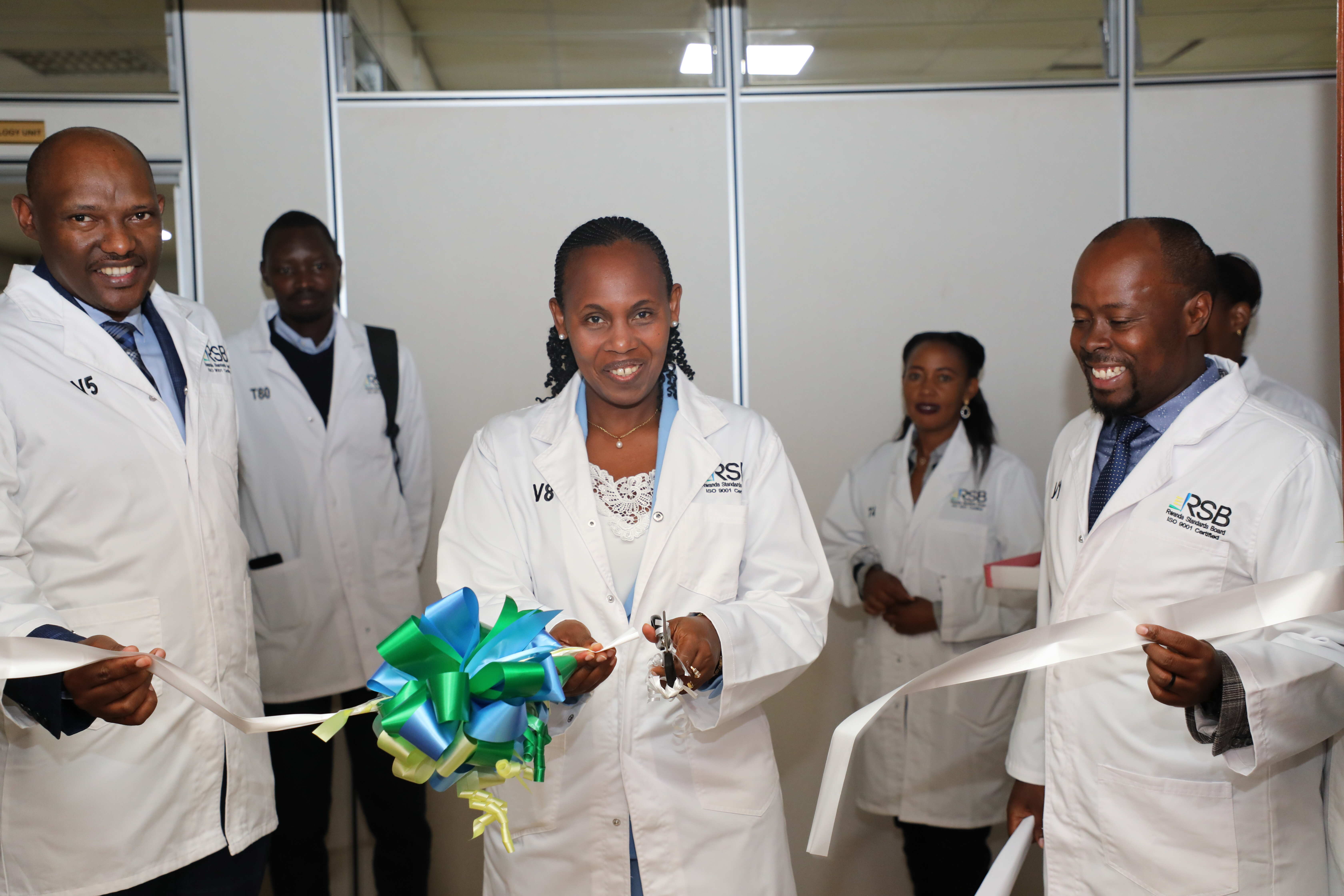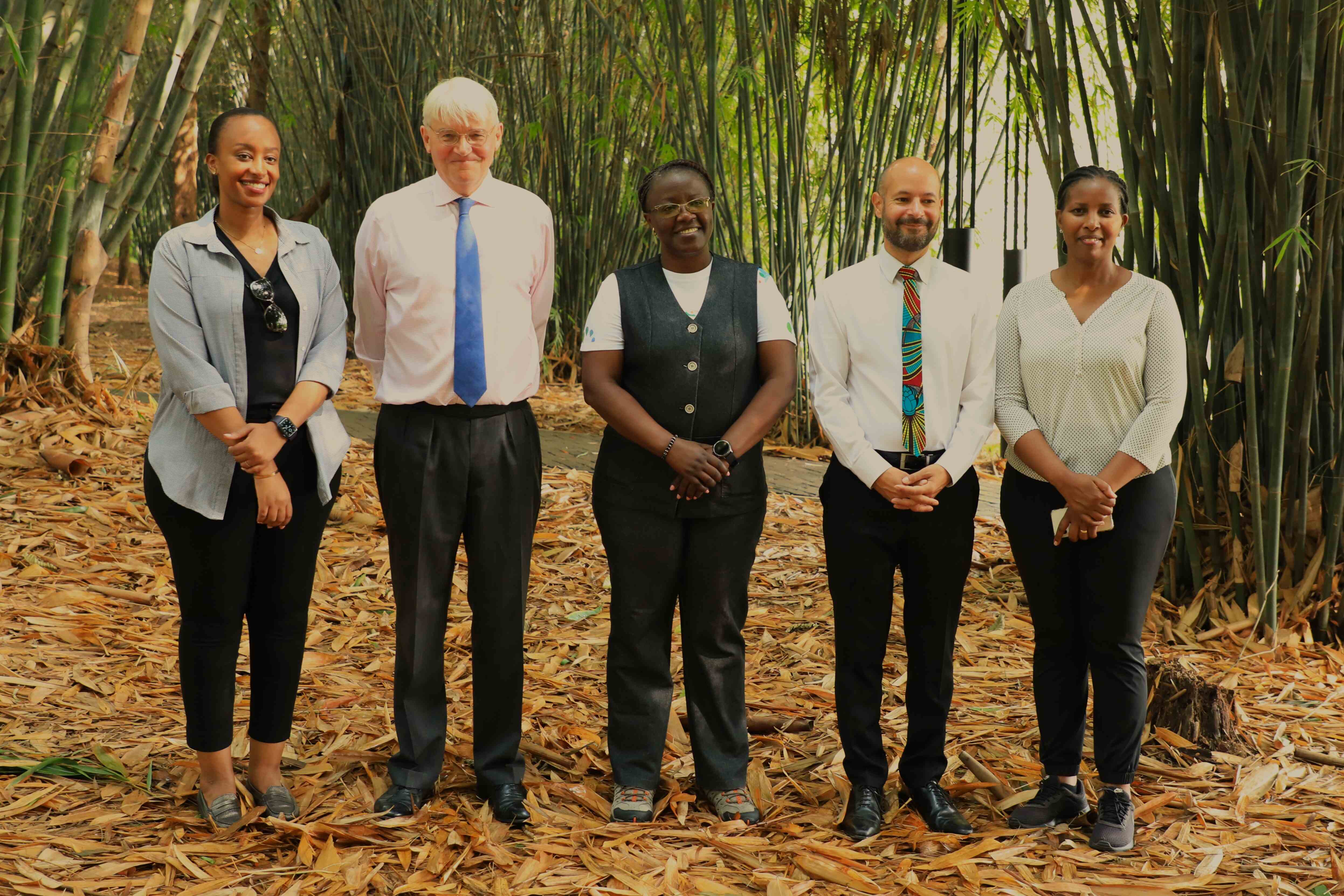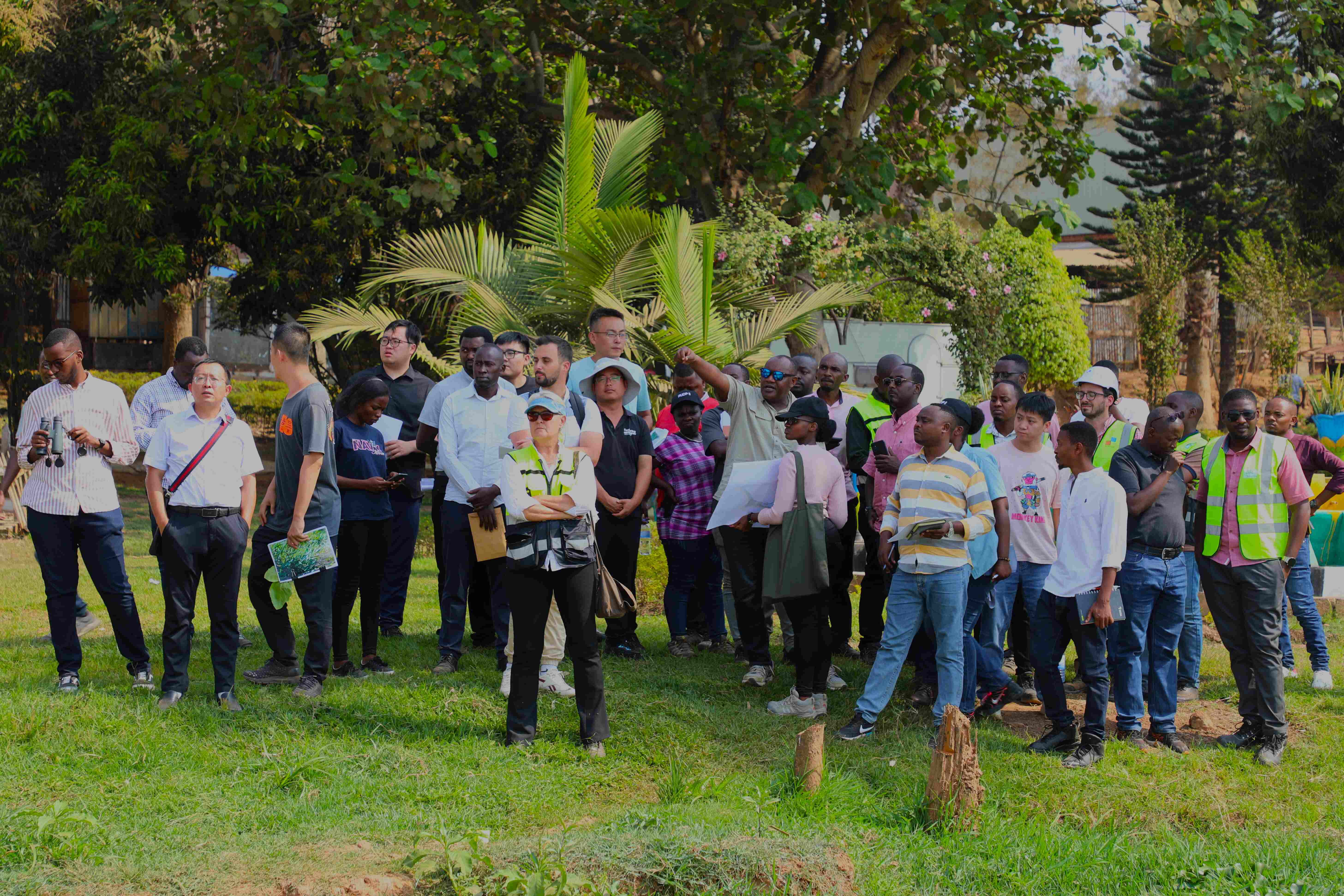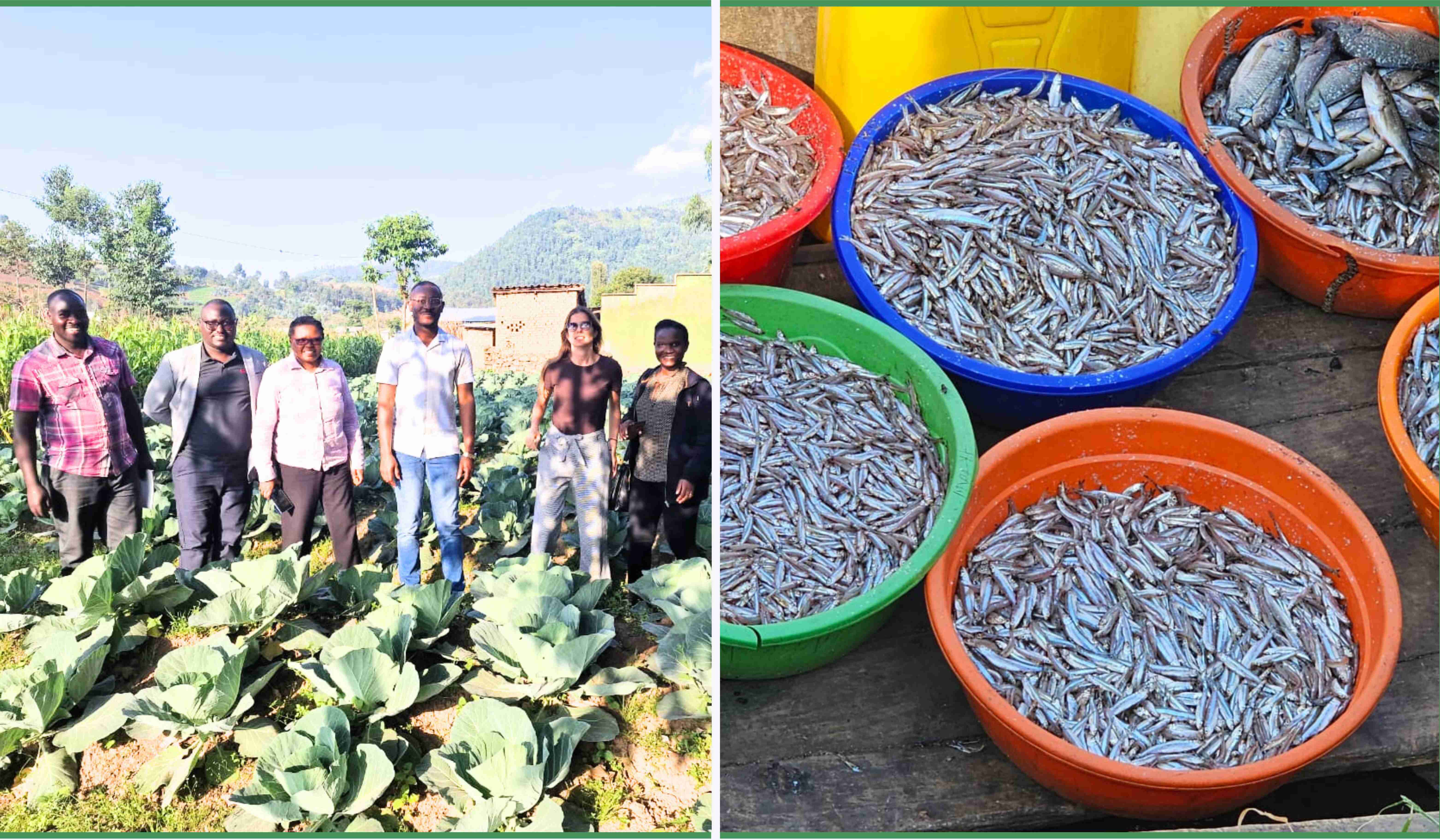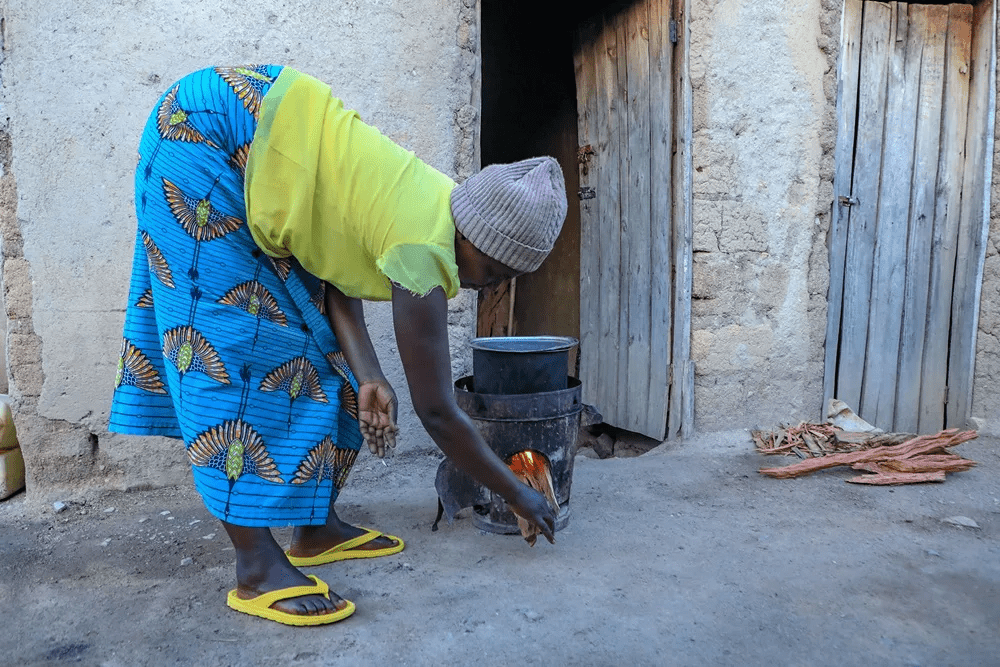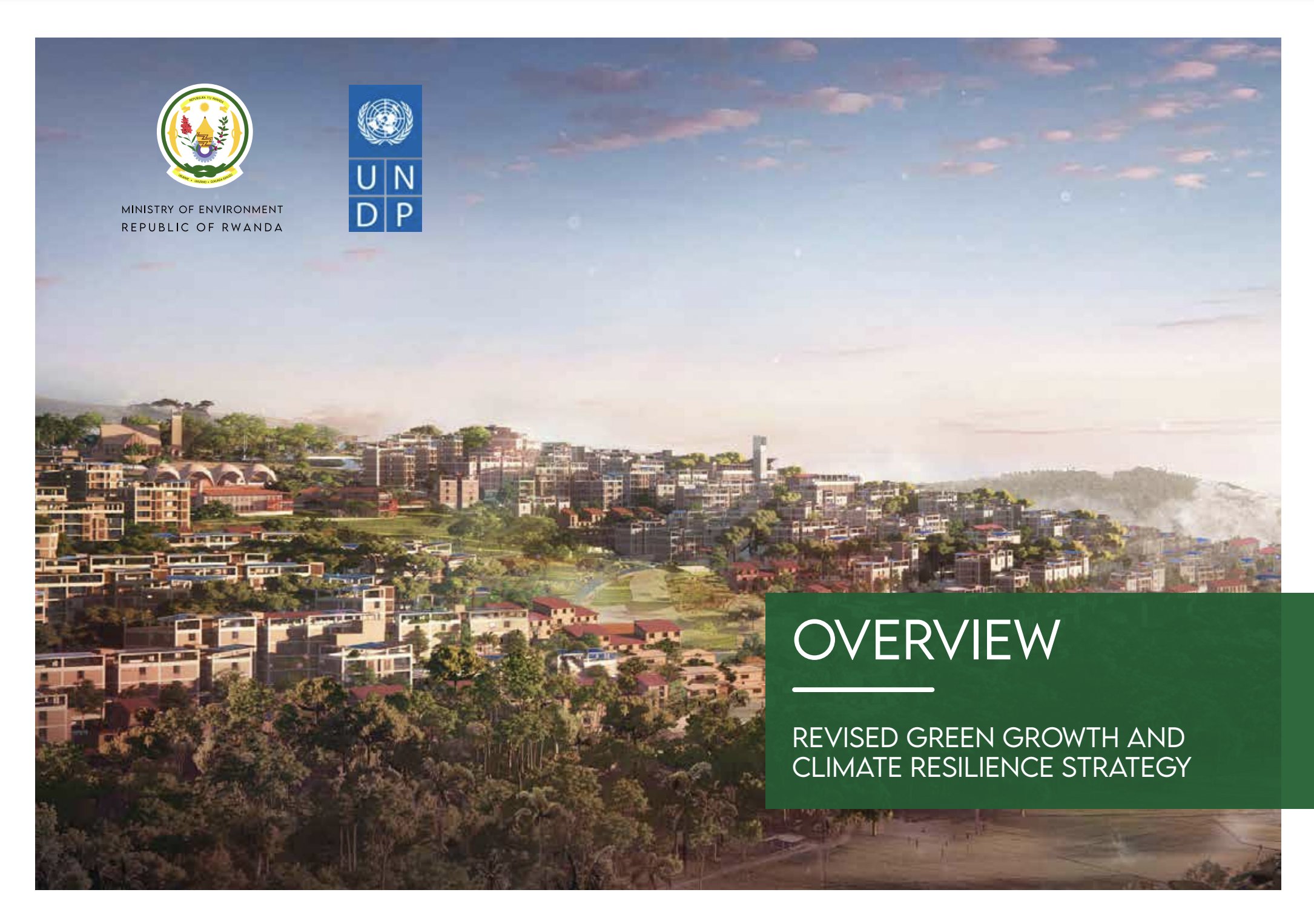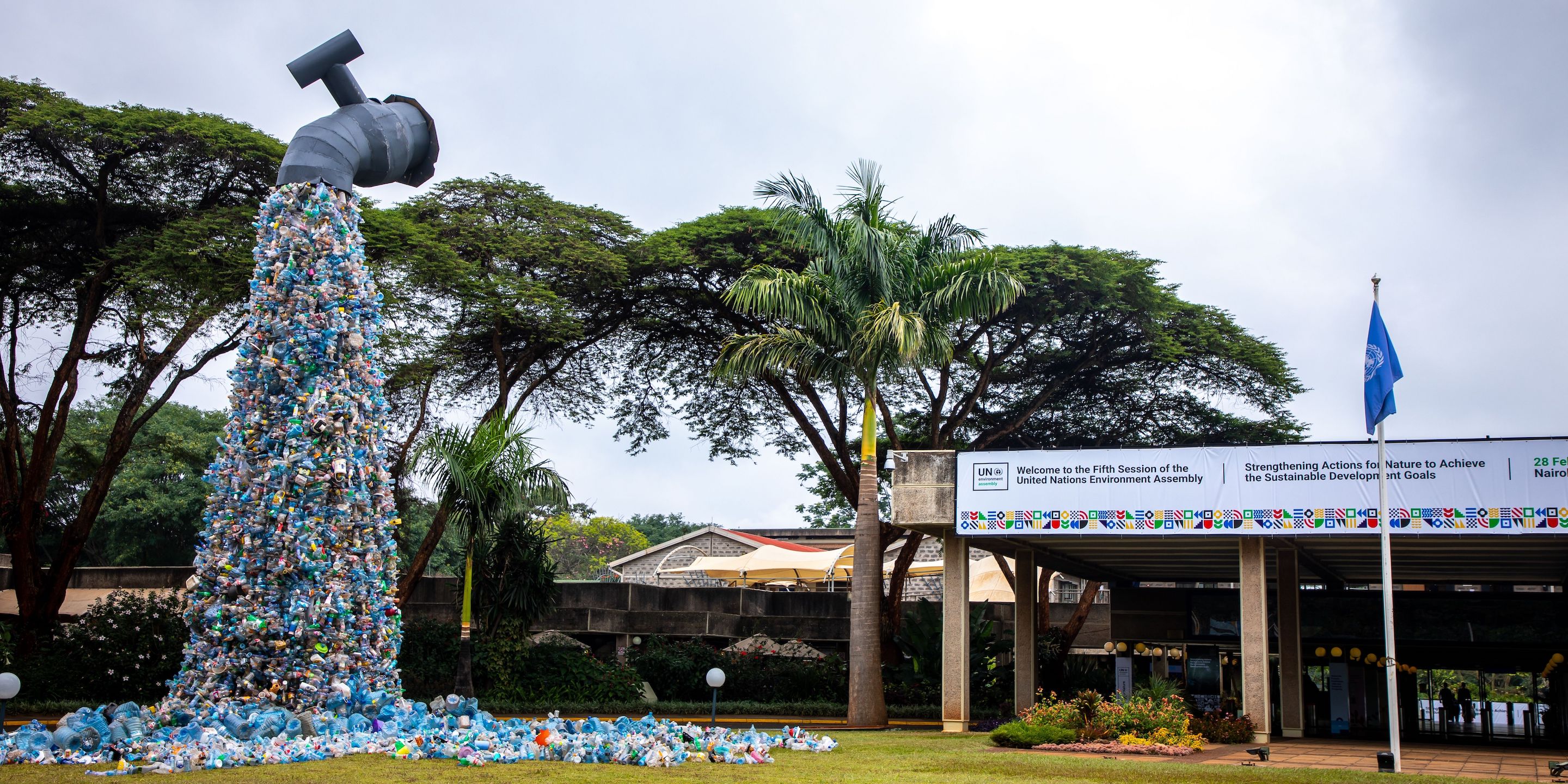
Press Release: Countries aim to end plastic pollution by 2040
Today the Governments of Rwanda and Norway launch The High Ambition Coalition to End Plastic Pollution together with Canada, Peru, Germany, Senegal, Georgia, Republic of Korea, UK, Switzerland, Portugal, Chile, Denmark, Finland, Sweden, Costa Rica, Iceland, Ecuador and France.
The High Ambition Coalition was first initiated following the historic UN Environment Assembly resolution 5/14 passed in March 2022 to start negotiations of an international legally binding instrument to end plastic pollution.
The High Ambition Coalition to End Plastic Pollution will issue statements and undertake intersessional work on essential elements and issues to inform the negotiations in order to develop a landmark treaty by 2024.
Minister of Climate and Environment of Norway and co-chair of the coalition, Espen Barth-Eide said: “We took the initiative to form a group of ambitious countries to work for a truly effective global treaty that will establish common global rules, turn off the tap and end plastic pollution by 2040.”
Plastic pollution has reached unprecedented levels the world over and is projected to rise significantly in the next decades. According to the OECD’s Global Plastic Outlook Policy Scenarios to 2060 report, without urgent global action, the volume of plastics in rivers and lakes will increase from 109 million tonnes in 2019 to 348 million tonnes in 2060 while plastics leaking into the ocean will rise from 30 million tonnes in 2019 to 145 million tonnes in 2060[1].
Plastic consumption is projected to skyrocket in the coming decades, from 460 million tonnes in 2019 to 1 231 million tonnes in 2060. The most significant sectors driving consumption are packaging, vehicles and construction which will make up 2/3 of all use[2].
Minister of Environment of the Republic of Rwanda and co-chair of the coalition, Dr. Jeanne d'Arc Mujawamariya remarked: Rwanda started the journey to end plastic pollution in 2004, unfortunately plastic wastes are still visible in the country’s downstream which proves the need of global efforts towards a common goal of ending plastic pollution because this is an unacceptable burden to place on future generations. Plastic pollution constitutes a planetary crisis with impacts on human health, biodiversity and climate system.”
Members of the High Ambition Coalition to End Plastic Pollution will meet in New York in a few weeks, during the UN General Assembly, to discuss next steps in the coalition’s work.
The first meeting of the Intergovernmental Negotiating Committee is set to commence November 28th in Punta del Este, Uruguay.
Please go to www.hactoendplasticpollution.org for more information and list of member states in the High Ambition Coalition to End Plastic Pollution. Follow the High Ambition Coalition on Twitter and LinkedIn for more updates.
Media Enquiries
Martin Lerberg Fossum, email Martin-Lerberg.Fossum@kld.dep.no, phone, +47 46 81 98 12
Cyprien Ngendahimana, email cngendahimana@rema.gov.rw, phone +250788233086
Notes for the Editor
The High Ambition Coalition have outlined three strategic goals and seven key deliverables for success in the negotiations:
Global strategic goals:
- Restrain plastic consumption and production to sustainable levels.
- Enable a circular economy for plastics that protects the environment and human health.
- Achieve environmentally sound management and recycling of plastic waste.
Key deliverables for success:
- Eliminate problematic plastics, including by bans and restrictions.
- Develop global sustainability criteria and standards for plastics
- Set global baselines and targets for sustainability throughout the lifecycle of plastics.
- Ensure transparency in the value chain of plastics, including for material and chemical composition.
- Establish mechanisms for strengthening commitments, targets and controls over time.
- Implement monitoring and reporting at each stage through the lifecycle of plastics.
- Facilitate effective technical and financial assistance, scientific and socio-economic assessments.
“End Plastic Pollution: Towards a legally binding instrument” was a resolution passed at UNEA 5.2 in Nairobi, in March 2022. The resolution, which was hailed as “the most important international multilateral environment deal since Paris”, called for:
- Global objectives to tackle plastic pollution in marine and other environments and its impacts
- Global obligations and measures along the full lifecycle of plastics, including on product design, consumption and waste management
- A mechanism for providing policy-relevant scientific information and assessment
- A mechanism for providing financial support to the treaty implementation
- National and international cooperative measures
- National action plans and reporting towards the prevention, reduction and elimination of plastic pollution
- Treaty implementation progress assessment
All plastics are made of chemicals, from basic polymers to additives and processing aids. Over 10 000 chemicals associated with plastics and plastic manufacturing across a wide range of applications have been identified and over 2 400 of these chemicals are noted as potentially hazardous to human health and the environment.[1]
Less than 10% of the plastic waste ever produced have been recycled. According to the OECD, half of all plastic waste will continue to be landfilled and plastic pollution will double if we continue on our current path.
Some of the world’s largest corporations (including Unilever, P&G, Walmart and Coca Cola) have joined together to call for global targets and standards for the plastics life style, to create an even playing field for them to develop new circular business models and make a circular economy work in practice and at scale.[2]
Statements from Coalition Members
Minister of Foreign Affairs, Republic of Korea, Park Jin said:
"Having personally led the national legislation to promote recycling of plastics in the past, I am keenly aware of the need for common global rules that can guide a transition to a more circular economy to protect human health and the environment and welcome the initiative to form the High Ambition Coalition.".
Minister of Foreign Affairs of Peru, Miguel Ángel Rodríguez Mackay said:
“The use of plastics in our society have reached unsustainable levels. In addition, plastic pollution disproportionately affects developing countries and socio-economically challenged communities working in informal and cooperative settings. We need to minimize the demand of plastics and increase the supply of recycled plastics for new products, in order to achieve sustainable consumption and productive patterns.”
Government Minister for International Environment in UK, Lord Goldsmith said:
“With restrictions on single-use plastics, our commitment to ban plastic exports to non-OECD countries, and our world-leading plastic packaging tax, the UK is at the forefront of tackling plastic pollution. We are fully behind this ambitious and far-reaching agreement which will help to reverse the unimaginable damage caused to the global environment.
“Early involvement of the private sector, academia and civil society will be critical to the success of a legally-binding treaty on plastic pollution. Governments cannot act alone and in the UK we will work closely with all stakeholders to develop the best solutions to end plastic pollution.”
Minister of Environment and Climate Change in Canada, Steven Guilbeault said: “Canada is committed to end plastic pollution and is actively engaged in negotiations towards a new global agreement on plastics to ensure it is ambitious, legally binding and takes into account the full lifecycle of plastics. We are proud to join and fully endorse the creation of the High Ambition Coalition End Plastic Pollution and support its objectives. We urge other countries to join this important initiative as well.
Canada has a strong track record in the fight against plastic pollution. We spearheaded the Ocean Plastics Charter in 2018 and played a key role in facilitating the process that launched negotiations for a global agreement on plastics. We have already taken decisive steps at home to ban harmful single-use plastics and are moving forward to develop regulations to require plastics manufacturers to include more recycled content in their products, as well as to establish clear new labelling rules. Plastic pollution is a global problem that requires a global shift towards a zero-waste, circular plastics economy.”
Minister of Environment of Denmark, Lea Wermelin said: ”We are committed to fight for an ambitious, legally binding agreement. An agreement, which ensures that plastic is produced, consumed, reused and recycled sustainably - for a world free of plastic pollution by 2040.”
Federal Councillor and Head of the Federal Department of the Environment, Transport, Energy and Communications DETEC, Simonetta Sommaruga said: “Switzerland firmly believes that such a coalition can support the development of an ambitious and meaningful international legally binding instrument on plastic pollution that will contribute to ending plastic pollution including by reducing the plastic consumption and production and enabling a safe circular economy for plastics.”
[1] Wiesinger, H et al (2021): Deep dive into plastic monomers, additives, and processing aids. Environmental Science & Technology 2021 55 (13), 9339-9351
[2] Business statement for a legally binding UN treaty on plastic pollution (plasticpollutiontreaty.org)
[1] OECD (2022): Global Plastic Outlook Policy Scenarios to 2060.
[2] OECD (2022): Global Plastic Outlook Policy Scenarios to 2060.
Topics
More posts
Rwanda launches the first-ever calibration laboratories for meteorology, hydrology and air quality monitoring equipment
Rwanda will no longer outsource calibration services for meteorology, hydrology and air quality monitoring equipment, as these services will from now…
International Day of Clean Air for Blue Skies: How Rwanda is taking bold action to beat air pollution
Rwanda has on September 7, 2023 joined the rest of the world to mark the International Day of Clean Air for Blue Skies, which is celebrated annually…
What you did here is so impressive – UK Minister of State for Development and Africa
The United Kingdom (UK) Minister of State for Development and Africa, Rt Hon Andrew Mitchell MP, commends Rwanda’s efforts to protecting the…
REMA conducts a site visit for interested bidders in four wetlands to be rehabilitated in the City of Kigali
The Rwanda Environment Management Authority (REMA) has on 22nd and 23rd August 2023 conducted a guided tour for interested bidders in the five…
Green Amayaga Football competition: Thousands gather to receive messages regarding the project sustainability
The Rwanda Environment Management Authority (REMA) in partnership with Action pour la Protection de l‟Environnement et la Promotion des Filières…
African farming communities kick start cold-chain in continent
Farmers and fishers in Rwanda are joining sustainable cooling experts to learn how clean-cold technology can revolutionise their businesses.
Farmers…
The World Bank vice-president visits one of the five wetlands to be rehabilitated in the City of Kigali
Kigali, 15 June, 2023-Today, the World Bank Vice-President for Eastern and Southern Africa, Victoria Kwakwa visited Rwampara wetland which is one of…
Green Amayaga Project, a solution for women and children
Many decades ago, women and children in Amayaga Region – in Rwanda’s southern province – have been struggling with the lack of firewood and…
Rwanda Launches revised Green Growth and Climate Resilience Strategy
Rwanda has on June 5, 2023 launched the Revised Green Growth and Climate Resilience Strategy as part of World Environment Day celebrations. The…
